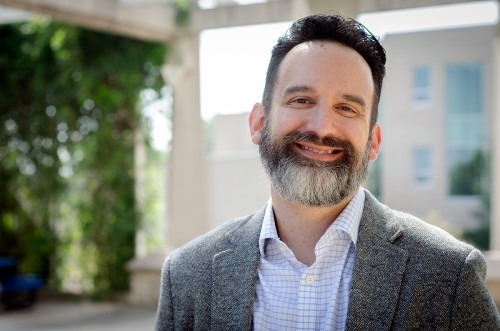Matt Lineberry, Ph.D., Director of the Rockhurst University M.S. in Industrial and Organizational Psychology
Image

Often in life, choosing to walk the road less traveled can open up big opportunities. For many, deciding on the right graduate program can open doors to meaningful, well-paid, and fulfilling work. For me, the turning point was discovering a career path I hadn’t even known existed: industrial and organizational psychology. Thanks to a mentor, I pursued this field—and it has been a fast track to impactful and rewarding opportunities. Now, as director of the Rockhurst University M.S. in Industrial and Organizational Psychology program, I’m lucky to be in the position of sharing that opportunity with others.
By far, most people I meet haven’t heard of "I/O psychology" master’s programs or even the field itself. When I explain to people what it is, I very often get one or both of two responses:
• “Oh! That’s exactly what I want to do with my career.”
• “Oh! That’s who we need to hire at our organization.”
So, what is industrial and organizational psychology? At its core, it’s the science of applying psychology to the workplace. Through graduate programs in industrial psychology, trained I-O psychologists learn how to diagnose organizational challenges, improve employee well-being, and design systems that make work more effective, healthy, and fair. They build expertise in fundamental psychological dynamics that drive how we experience and perform work.
For example, in prior work I did for the U.S. Navy, I relied on my training in cognitive psychology to better understand the challenges that combat medics – “Corpsmen”, as they’re named in the Navy – face when they need to perform tricky emergency first aid procedures on a battlefield. That expertise helped me to design systems to detect whether we were providing sufficiently realistic and rigorous training to prepare our sailors for such daunting work. To me, that work felt deeply meaningful: after all, if we were going to ask people to risk their lives and health for our country, I was proud to do my part to make sure we were giving them the support they needed.
Because I-O psychology is so broadly relevant, we help workers and organizations in a lot of different ways. One day, an I-O psychologist might be very focused on understanding and improving employee job satisfaction. Another day, they may consult on the technical details of an organization’s employee selection procedures. Other times, they may “zoom in” on the fine details of how critical work is performed and supported. For instance, I’ve worked to improve how surgical teams pivot during a medical emergency – a time when great teamwork can make a huge difference.
I-O psychologists play these wide-ranging roles for organizations, but they rarely have “I-O psychologist” in their job title. I suspect that’s part of why the field is still not well known. That said, any job focused on improving work is likely to have a lot of I-O psychology graduate program-trained professionals filling that role. Some example job titles include:
- Director of Talent Development
- People Analytics Specialist
- Organizational Development Lead
- Instructional Designer
- Executive Coach
- Employee Listening Specialist
- Performance Assessment Analyst
- Change Management Consultant
- Occupational Health Strategist
The demand for professionals with a background in industrial and organizational psychology is strong—and growing. According to the Society for Industrial and Organizational Psychology (SIOP), the median salary for master’s-level I/O psychologists was $100,000 in 2021, with steady increases year over year. As organizations face new challenges such as artificial intelligence and workplace transformation, graduates of I/O psychology master’s programs are uniquely equipped to help organizations adapt and thrive.
If you, a friend, or family member is a recent college graduate exploring master’s programs in psychology, or a mid-career professional looking for a new path, consider the Rockhurst University M.S. in Industrial and Organizational Psychology. It’s a program designed to prepare students for meaningful careers where psychology and business meet. And, by all means, reach out to me if you have questions!
